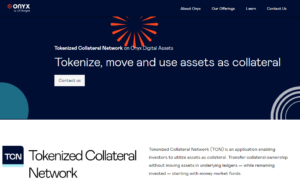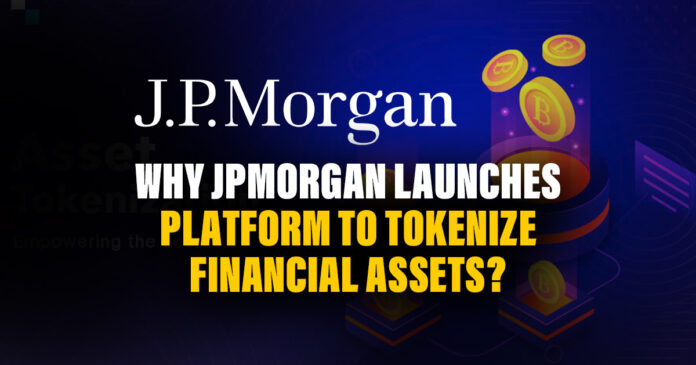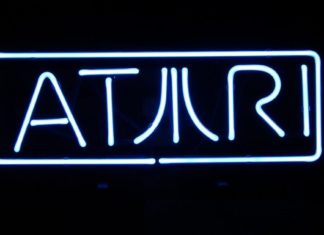JPMorgan is one of the US giants when it comes down to banks. Not too long ago, they had a skeptical view of the decentralized space. However, it appears that they’re slowly making a turn on this view. They now launched a new Tokenized Collateral Network (TCN).
So, let’s take a look at the first steps that JPMorgan took into the world of digital asset platforms. It’s by no means decentralized, but it’s a start.
JPMorgan Launches Tokenization Platform – First Trade Settled With BlackRock.
“Bitcoin itself is a hyped up fraud.”
~ Jamie Dimon CEO JP Morgan pic.twitter.com/YmAmK0np0r— Jason A. Williams (@GoingParabolic) October 11, 2023
What Is the Tokenized Collateral Network (TCN)?
The Tokenized Collateral Network (TCN) is a platform that uses blockchain technology. JPMorgan developed it in-house. The first internal tests date already back to May 2022. Its launch may have been as early as 2021, according to other sources. However, on their X account, there’s not a single word about this platform.
On 11th October, Bloomberg reported the first settlement. This was with BlackRock, another financial giant in the US. They are also part of their important clients. BlackRock tokenized “shares in one of its money market funds”. In turn, BlackRock transferred the tokenized assets to the Barclays bank. Here they used these tokenized assets as security for a trade. Both banks made an OCT (over-the-counter) derivatives trade. OCT trades are not made on a public financial exchange. In contrast, these are direct trades between two parties. There’s no middleman involved, for example, like an exchange.
Tokenization is an up-and-coming niche in the crypto space. The growth and impact of this market will be massive. According to this report, by 2023 this should be worth $16 trillion. So, there is one of the reasons why JPMorgan wants to get into this market. However, as already mentioned, their TCN platform is a centralized platform. Big bank institutions like JPMorgan are not fans of decentralization. There’s a simple reason for this. In a decentralized setup, they can easily lose control. Banks rather prefer to stay in control.
This is exciting: JPM did its 1st live blockchain-based collateral transaction with other entities, using its Onyx blockchain to tokenize shares in a BlackRock money market fund and transfer them to Barclays via its Tokenized Collateral Network. BUT… 🧵https://t.co/uWlZkcOMv9
— Noelle Acheson (@NoelleInMadrid) October 11, 2023
Why Does JPMorgan Wants to Tokenize Assets?
Tokenizing assets makes trades easier, and you can execute them faster. You can unlock capital, tokenize it, and use it as collateral. That’s even possible in ongoing sales. So, as you can see, it’s very efficient.
JPMorgan’s TCN can create, transfer, and settle these tokenized assets. Moving traditional assets around can be time-consuming. By digitalizing the assets, you can move them around instantly. It also makes old-style unsecured and expensive credit lines obsolete. On the other hand, you can use tokenized collateral in secured repo transactions. These are short-term agreements. You sell securities and agree to buy them back. However, you do this at a marginally higher price.
So, TCN is JPMorgan’s distributed ledger system. Nonetheless, external clients can still use it. However, they need their own node. This node allows them to settle their digital ledger trades with JPMorgan. Blockchain technology reduces the risk of errors and also of fraud. Furthermore, institutions have a wider array of collateral to choose from. Diversification of collateral asset types gives institutions greater flexibility.
As you can see, TCN is a financial product targeting institutions. However, JPMorgan doesn’t forget about retail customers and small businesses. They’re also working on a CBDC-style digital currency. It’s supposed to be a mix between stablecoins and CBDCs. This will also use blockchain technology. But like TCN, it’s not decentralized.

Conclusion
We see that a US banking giant like JPMorgan has started to use blockchain technology. They entered the world of tokenizing assets (RWA). It’s all on their own centralized version of a DLT (Distributed Ledger Technology).
This allows them to keep control. The tokenized assets space should reach a $16 trillion volume by 2023. JPMorgan doesn’t want to miss out on this opportunity. It appears they like the technology that crypto uses, but not crypto itself. At least, not yet.
Disclaimer
The information discussed by Altcoin Buzz is not financial advice. This is for educational, entertainment, and informational purposes only. Any information or strategies are thoughts and opinions relevant to the accepted levels of risk tolerance of the writer/reviewers, and their risk tolerance may be different from yours.
We are not responsible for any losses that you may incur as a result of any investments directly or indirectly related to the information provided. Bitcoin and other cryptocurrencies are high-risk investments, so please do your due diligence.
Copyright Altcoin Buzz Pte Ltd.





























